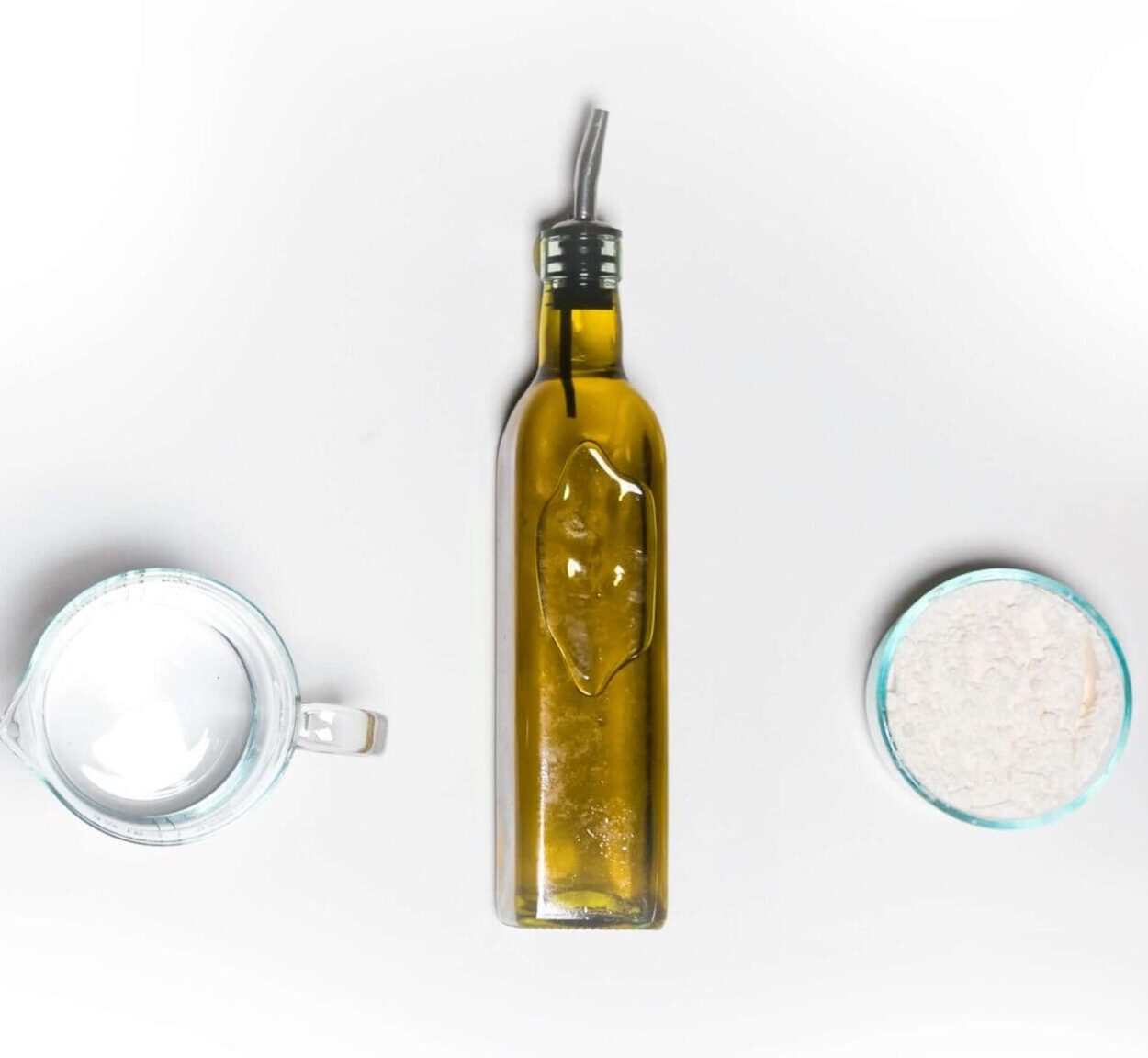Introduction to Weight Management/Gain
Hello friend!
You may be confused hearing that maintaining weight is the goal during treatment, especially if you have a weight loss goal. Depending on your cancer, treatment type, and overall nutrition status, your doctor may actually encourage you to hold off on any weight loss goals until after treatment. In rare cases, one might pursue gradual weight loss under the supervision of their dietitian and doctor, but even these people have to ensure they are not losing too much weight too fast.
For many people, maintaining or even working to gain weight during cancer treatment is of paramount importance for a variety of reasons. Cancer and its treatments place significant stress on the body, potentially leading to weight loss, muscle wasting, and compromised overall health. Today on the blog, I will be covering why weight management is so important for individuals going through cancer treatment and what you can do to keep yourself strong, kick cancer’s butt, and bounce back from treatments. Lets do this!
The Importance of Weight Management During Treatment
1. Vital Energy Reserves
Extra body weight serves as a reserve of energy that the body can tap into during the rigors of cancer treatments, such as chemotherapy or radiation therapy. This energy reserve helps to sustain strength and endurance, enabling patients to better tolerate the physical and emotional challenges of treatment.
2. Immune System Support
Prioritizing adequate nutrition and a healthy body weight promotes a robust immune system. Cancer treatments can weaken the immune system, making it more susceptible to infections. Maintaining a healthy weight supports the body’s defense mechanisms and aids in fighting off illnesses.
3. Faster Recovery
Surgery and other cancer interventions require a strong and well-nourished body for a swift and successful recovery. Weight loss can hinder the body’s ability to heal and bounce back from medical procedures, potentially prolonging the recovery process.
4. Improved Quality of Life
Weight loss and malnutrition can lead to fatigue, weakness, and a diminished quality of life. In contrast, maintaining a healthy body weight can help individuals feel more energized, mentally alert, and better able to engage in daily activities and maintain a sense of normalcy.
5. Treatment Tolerance
Some cancer treatments, such as chemotherapy, can cause nausea, loss of appetite, and changes in taste perception, making it challenging to consume enough calories and nutrients. By actively working to maintain or regain weight, patients can increase their tolerance for these treatments and potentially minimize treatment interruptions.
6. Nutrient Absorption
Weight loss can impair the body’s ability to absorb essential nutrients, leading to deficiencies that further compromise overall health. Maintaining a healthy weight ensures that the body can effectively utilize the nutrients from food to support its healing processes.
Incorporating a well-balanced diet, nutritional supplements if necessary, and a personalized exercise regimen can play a huge role in achieving and maintaining a healthy body weight during cancer treatment. Additionally, consulting with healthcare professionals, including oncologists and registered dietitians, can help you develop a tailored plan that addresses specific nutritional needs and ensures the best possible outcomes throughout the cancer journey. Ultimately, maintaining weight isn’t just about numbers on a scale; it’s about preserving strength, vitality, and resilience during a challenging time.
How to Maintain Weight During Treatment
Let’s delve into how specific strategies related to sleep, hydration, nutrition, movement, and exercise can facilitate healthy weight gain and help you maintain a balanced body weight.
1. Sleep
Quality sleep plays a pivotal role in weight management. During treatment, you want to avoid losing lean body mass since this can reduce how well your body recovers, making you more susceptible to illness. During deep sleep, your body repairs and builds tissues, including muscle. Adequate sleep can support muscle recovery and growth, contributing to healthy weight gain.
2. Hydration
Proper hydration maintains metabolic functions, however a dehydrated state can lead to muscle loss, affecting your weight. Staying well-hydrated helps preserve muscle mass; thereby preventing unintentional weight loss.
3. Nutrition
Often people have the assumption that if they want to gain weight, they should eat a large proportion of ultra-processed foods in order to meet their calorie goals. Not to demonize these foods, but they should in no way make up the majority of our diet. Often, they are very high in sodium, saturated fats, and lacking in micronutrients, fiber, protein, and healthy fats. By focusing on balanced nutrition and an addition mindset, we will be providing our bodies with essential nutrients needed for overall health and recovery. Additionally, nutrient-dense foods can help you gain weight in a healthy way, supporting muscle and tissue repair. Here are 5 high-protein and high-calorie foods from various food groups, excluding processed meats, that can be beneficial for cancer survivors looking to support weight gain and overall health:
Proteins
- Chicken Breast: Skinless, boneless chicken breast is an excellent source of lean protein. It’s versatile and can be grilled, baked, or sautéed to add protein to various dishes.
- Salmon: Fresh salmon is not only rich in protein but also provides heart-healthy omega-3 fatty acids. Baking or grilling salmon can be a nutritious and delicious choice.
- Tofu: Tofu is a plant-based protein source that is both versatile and protein-rich. It can be added to stir-fries, salads, or blended into smoothies.
- Greek Yogurt: Greek yogurt is a dairy product packed with protein. It can be enjoyed as a snack, added to smoothies, or used as a base for dressings and dips.
- Legumes: Beans, lentils, and chickpeas are high-protein plant foods. They can be included in soups, stews, salads, or mashed and used as a spread.
Fruits and Vegetables
- Avocado: Avocado is a calorie-dense fruit that provides healthy fats, fiber, and some protein. It can be sliced onto sandwiches, added to salads, or blended into smoothies.
- Bananas: Bananas are a nutritious and energy-rich fruit, providing both calories and essential nutrients. They make an excellent addition to smoothies or can be eaten as a snack.
- Nuts: Almonds, walnuts, and cashews are calorie-dense nuts that offer protein and healthy fats. They can be eaten as a snack or added to salads and yogurt.
- Sweet Potatoes: Sweet potatoes are a starchy vegetable that provides calories and fiber. They can be roasted, mashed, or used in soups and casseroles.
- Spinach: Spinach is a leafy green vegetable that is relatively high in protein and packed with essential nutrients. It can be added to salads, omelets, or sautéed as a side dish.
Dairy and Dairy Alternatives
- Whole Milk: Whole milk is calorie-dense and provides protein, calcium, and essential vitamins. It can be consumed as a beverage or used in cooking and baking.
- Cheese: Cheese, such as cheddar or Swiss, is a protein-rich dairy product. It can be added to sandwiches, pasta dishes, or enjoyed as a snack.
- Soy Milk: Unsweetened soy milk is a plant-based alternative to dairy milk, offering protein and added calories. It can be used in cereals, coffee, or smoothies.
- Cottage Cheese: Cottage cheese is a dairy product that’s high in protein and can be eaten on its own, mixed with fruits, or used as a topping.
- Yogurt: Full-fat yogurt, whether dairy or plant-based, is a protein-rich food. It can be eaten as a snack, added to breakfast bowls, or used in desserts.
These foods from various food groups can provide the necessary calories and protein to support weight gain and overall well-being for cancer survivors. If you want a custom plat, it’s important to work with a registered dietitian to create a personalized nutrition plan that meets individual needs and preferences.
4. Movement
There’s a difference between exercise and movement! All exercise is movement but not all movement is exercise. Think of just getting up more and moving around. Reduce sedentary activity by walking, stretching, doing chores, etc. Regular, low-impact movement aids digestion, reduces muscle wasting, and enhances appetite. Consistent activity can improve your capacity to absorb nutrients and maintain muscle mass.
5. Exercise
Exercise is planned, repetitive movement with a design to achieve one or a combination of the following end goals: aesthetics, health and wellbeing, or/and competition. Regular exercise promotes muscle development, increases appetite, and boosts overall energy levels. Incorporating strength and cardiovascular training can help you gain lean muscle mass and control weight.
Wrap-Up
Each element of this holistic approach aims to enhance your body’s ability to absorb nutrients, maintain muscle mass, and promote overall well-being. By focusing on sleep, hydration, nutrition, movement, and exercise, you can embark on a journey to achieve a healthy body weight and enjoy a fulfilling life as a cancer survivor. You got this!
Are you ready to TRANSFORM your overall health and confidence with nutrition and lifestyle DURING cancer treatment? If so, you may be a good fit for my Cancer Simplified Nutrition Program. Inside, we tackle all the basics in simple, bite sized pieces so you can say goodbye to overwhelm and hello to ease! And guess what! I added a chat support feature with yours truly, so that you can get an extra boost as you are going through the training and ask any quick questions you may have. Click here to check it out!
This blog is not intended as medical nutrition therapy, medical advice, or diagnosis and should in no way replace consultation or recommendation from your medical professional.



